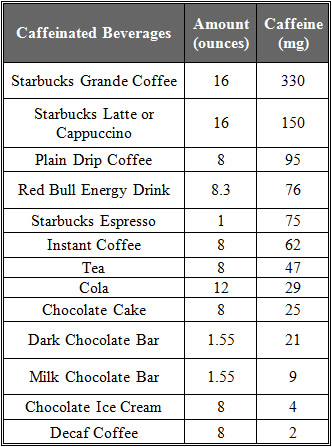Is Caffeine Bad for Male Fertility?
Caffeine is a kind of plant product that is now very popular for lots of stimulant beverages. Coffee may be the most popular source of caffeine. And today, the choices of caffeinated beverages are overwhelming – there are lots of beverages loaded with caffeine such as soft drinks, even chocolate products and some prescription medicines also can contain it. In general, it’s safe to drink caffeinated beverages, particularly if you drink it in moderation. The problem is when you get it too much. Excessive consumption of this stimulant may be bad for both female and male fertility.
As well we know that to get a conception and pregnancy, this can involve a complex process. Both sides (a man and a woman) must have good fertility.
When one side is poor in fertility, it’s difficult for a pregnancy to occur, even for a conception. Overall, there are lots of things that can affect the chance of getting pregnant.
If you are a man, you need the following conditions to make your partner get conception and become pregnant:
First thing you need to concern, make sure that you produce healthy sperm! The production of sperms in men is controlled and produced by the male reproductive organs, especially testicles.
Men have two testicles. To produce sperms, at least one of the testicles can work properly. And to make sure you keep productive in producing sperms, you need adequate testosterone and other hormones!
And a sperm alone cannot move optimally without semen. Once sperms are made in the testicles, they can be ejaculated with semen.
Then you need to have high number of sperms in your semen to improve the chance of getting conception.
According to Mayo Clinic, less than 39 million of sperms per ejaculate or less than 15 million of sperms in one mL (milliliter) of semen are categorized lower than normal.
You have healthy sperms and normal sperm count in your semen – but all these things are not enough to get conception if your sperms move slowly. Furthermore, your sperm should be normal in shape.
The ‘shape (morphology)’ and ‘movement (motility)’ of sperms can significantly affect the chance of getting conception. Sperms with abnormal morphology and slow movement tend to become very poor in penetrating the female’s egg.
As mentioned before, for most healthy adults, it is safe to drink coffee or other caffeinated beverages. But make sure to drink it moderately!
According to the Medical School of the Maryland University, caffeine can affect the chance of women to conceive and become pregnant when they get used with drinking excessively coffee or other caffeinated beverages for greater than 250 mg of caffeine per day!
See also the allowance dietary caffeine per day for most healthy adults in here!
Some studies found that excessive caffeine consumption can increase the length of time for a woman to get a conception and become pregnant. Furthermore, it may also increase the risk of miscarriage.
For these reasons, for women who are trying to get pregnant or being pregnant, the consumption of coffee or other caffeinated beverages must be very restricted!
The following is some popular caffeinated beverages and their caffeine content (table source: USDA National Nutrient Database for Standard Reference, 2008).

When it comes to the link between caffeine and fertility, the effect of this stimulant on male fertility still get less attention. In fact, many major trusted health sites don’t put caffeine as one of risk factors associated with lifestyle that can cause fertility problem or infertility in men.
 However, some preliminary clinical trials showed that caffeine may provide an initial burst of energy for sperms. But this only occurs at very short time. Then what happen is the sperms may loss power and they moving slower than normal.
However, some preliminary clinical trials showed that caffeine may provide an initial burst of energy for sperms. But this only occurs at very short time. Then what happen is the sperms may loss power and they moving slower than normal.
The scenario in this study is for men who drink caffeinated beverages such as coffee before getting intercourse.
The effect of caffeine to male fertility (particularly for long term effect) may be not as significant as in female fertility.
Overall, the link of both is still not fully understood! However, sometime doctors can recommend for both men and women who are difficult to have a baby to restrict caffeinated beverages.



